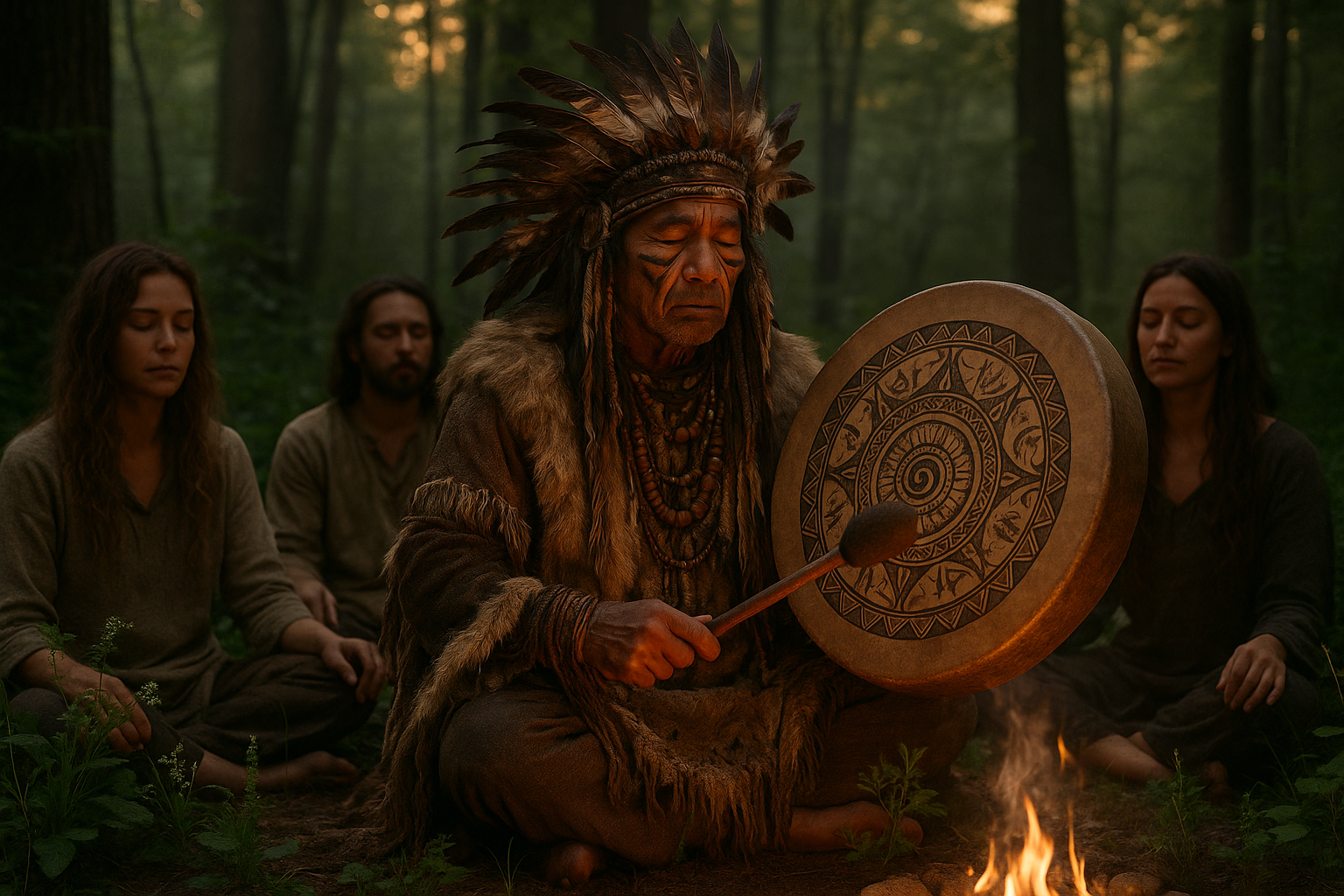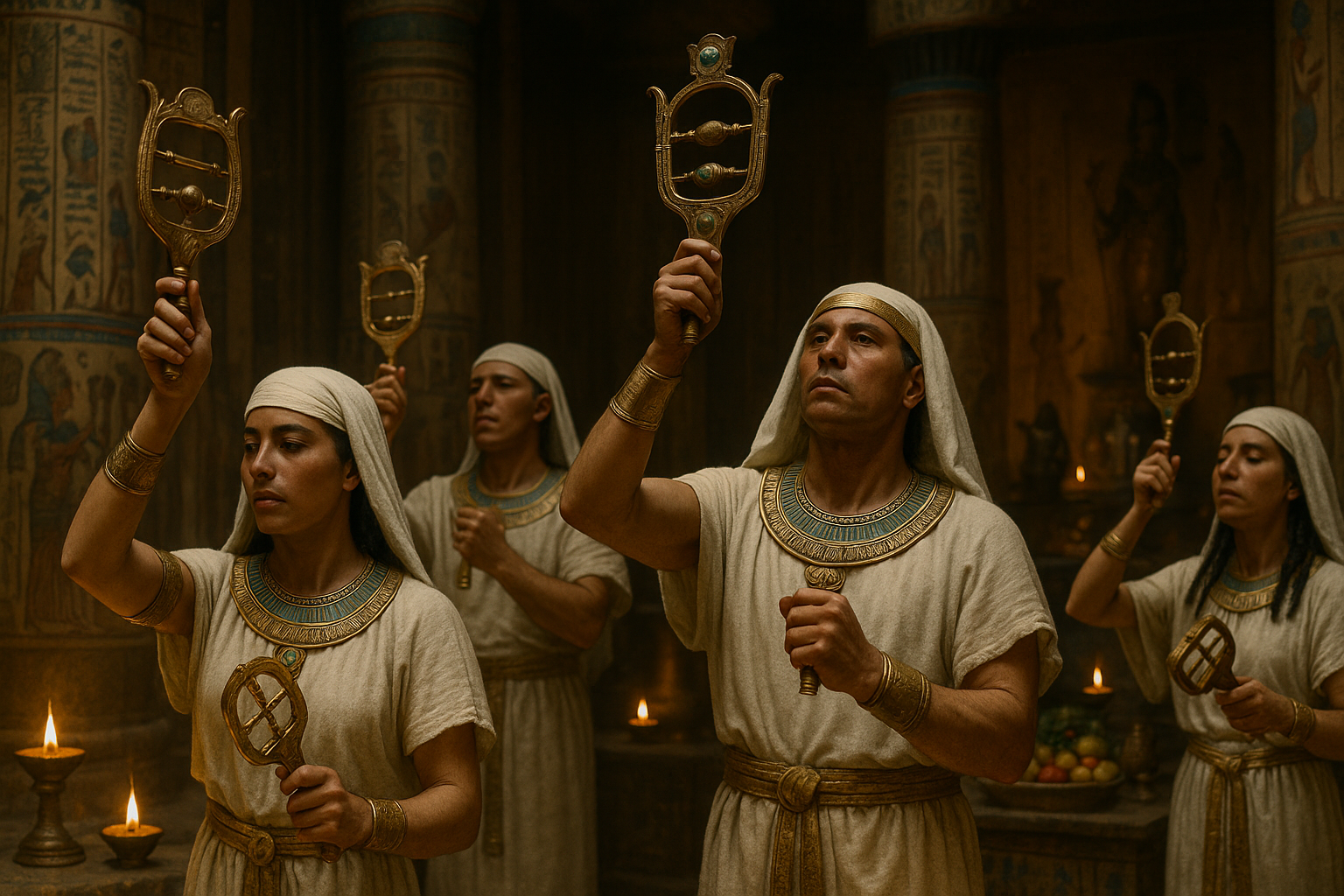Music has always been an integral part of human culture, echoing through the chambers of time and resonating within our souls. From the haunting chants of ancient rituals to the harmonious symphonies played in grand cathedrals, music serves as a bridge between the earthly and the divine. But what if this art form holds more than just aesthetic value? What if, within its notes, lies a sacred power to appease deities and influence the spiritual realm? 🌌
In “Divine Melodies: Unlock the Power of Music to Appease Deities,” we embark on a fascinating journey exploring how different cultures have used music as a form of divine communication. We’ll delve into the mystical relationships between sound and spirituality, revealing how melodies can act as offerings to the gods and goddesses that govern our world. This exploration is not just about historical insights but also about understanding how these practices can influence our modern lives.
Throughout this article, you’ll discover the ancient traditions where music played a central role in religious ceremonies. We will traverse the globe, from the rhythmic drumming in African rituals to the serene chants in Buddhist monasteries, unveiling the universal language of music that transcends borders and beliefs. 🎶
One might wonder, why music? What makes it so special in the eyes of the divine? The answer lies in its vibrational nature. Sound waves can influence our state of mind, alter our consciousness, and even heal our bodies. This inherent power of music is believed to extend beyond human perception, reaching the spiritual realms where deities reside. By understanding these concepts, we can begin to appreciate why music is such a potent tool in spiritual practices.
In addition to exploring traditional uses, we’ll also consider the science behind the sacred. Modern research into the field of music therapy and sound healing offers insights that align with ancient beliefs. The frequencies and rhythms that resonate within us might just be the same ones that connect us to the divine. As you read, you’ll encounter scientific perspectives that validate age-old practices, offering a holistic view of music’s spiritual significance.
But this journey is not just about observation. It’s an invitation to engage and experiment. How can you incorporate the power of music into your spiritual practices? Whether through curated playlists, learning to play an instrument, or simply being more mindful of the music you listen to, there are practical ways to harness these divine melodies in your everyday life. 🧘♀️
Furthermore, we’ll reflect on personal stories and experiences of individuals who have felt the divine connection through music. These narratives offer a glimpse into the transformative potential that music holds, not only as a means of worship but also as a path to personal enlightenment and inner peace.
As we explore these divine melodies, it’s essential to approach the topic with an open mind and heart. Regardless of your belief system, there is something universally profound about music’s ability to touch the soul and elevate the spirit. It’s a reminder of the interconnectedness between all living things and the unseen forces that guide us. 🌿
So, get ready to dive deep into the harmonious world where music and spirituality intertwine. Whether you’re a curious seeker, a seasoned spiritualist, or simply someone who loves a good tune, there’s something in this exploration for you. Prepare to unlock the secrets of divine melodies and discover how they can transform your connection with the divine.
Join us as we uncover the symphonic paths that lead to spiritual enlightenment, one note at a time.

Conclusion: Divine Melodies – Unlocking the Power of Music to Appease Deities
As we draw the curtains on our exploration of Divine Melodies, it’s essential to recapture the profound insights we’ve uncovered in this journey through the harmonious intersection of music and spirituality. 🎶 From the earliest known civilizations to contemporary practices, music has stood as a universal language that transcends borders and speaks to the divine.
Throughout the article, we delved into the historical roots of music’s role in religious and spiritual practices. We uncovered how ancient cultures, like the Greeks and Egyptians, perceived music as a conduit to the gods, using melodies and hymns as offerings to appease and connect with higher powers. By examining these cultural tapestries, we gained a deeper understanding of the intrinsic value and sacredness attributed to musical expressions across time.
Another focal point was the exploration of specific instruments and sounds that hold significant spiritual meaning. The use of the sitar in Indian devotional music, the ethereal resonance of Tibetan singing bowls, and the powerful chants of Gregorian monks all exemplify how different societies harness sound to facilitate spiritual experiences. These instruments do not merely produce music; they evoke a sense of tranquility, reflection, and communion with the divine.
Moreover, we touched on the psychological and emotional impacts of music, emphasizing its therapeutic properties. Music therapy, with its roots intertwined with spiritual practices, demonstrates how melodies can heal, inspire, and elevate the human spirit. Whether through meditative mantras or uplifting gospel hymns, music provides solace and a means to transcend the mundane, fostering a closer bond with the spiritual realm.
The scientific perspective also had its place in our discussion, with research studies highlighting how certain frequencies and harmonies can influence brain waves, promoting states of relaxation and spiritual awakening. This scientific backing reinforces the age-old belief in music’s divine power, bridging the gap between tradition and modernity. For those interested in diving deeper, [this article](https://www.ncbi.nlm.nih.gov/pmc/articles/PMC8504437/) offers a compelling exploration of music’s impact on mental health.
In essence, the synthesis of historical, cultural, psychological, and scientific viewpoints paints a comprehensive picture of music’s unique position as a spiritual tool. It serves as a reminder of the power of sound in connecting us to something greater than ourselves, and its potential to foster peace, healing, and unity.
As we conclude, it’s vital to acknowledge the enduring relevance of music in today’s fast-paced world. In times of uncertainty and discord, turning to music as a means of solace and spiritual fulfillment can be incredibly enriching. Whether you are a musician, a listener, or someone seeking spiritual growth, embracing the divine melodies around you can lead to profound personal transformation.
We encourage you to explore music therapy, attend spiritual concerts, or simply create your own sacred playlist to experience its benefits. Engage with this content, share your thoughts and experiences in the comments below, and spread the knowledge by sharing this article with others who might benefit from this harmonious exploration. 🌟
Music is not just an art form; it is a divine bridge that invites us to explore the depths of our spirituality. Let’s celebrate this gift and continue to harness its power to connect, heal, and inspire. 🎵
Toni Santos is a cultural storyteller and food history researcher devoted to reviving the hidden narratives of ancestral food rituals and forgotten cuisines. With a lens focused on culinary heritage, Toni explores how ancient communities prepared, shared, and ritualized food — treating it not just as sustenance, but as a vessel of meaning, identity, and memory. Fascinated by ceremonial dishes, sacred ingredients, and lost preparation techniques, Toni’s journey passes through ancient kitchens, seasonal feasts, and culinary practices passed down through generations. Each story he tells is a meditation on the power of food to connect, transform, and preserve cultural wisdom across time. Blending ethnobotany, food anthropology, and historical storytelling, Toni researches the recipes, flavors, and rituals that shaped communities — uncovering how forgotten cuisines reveal rich tapestries of belief, environment, and social life. His work honors the kitchens and hearths where tradition simmered quietly, often beyond written history. His work is a tribute to: The sacred role of food in ancestral rituals The beauty of forgotten culinary techniques and flavors The timeless connection between cuisine, community, and culture Whether you are passionate about ancient recipes, intrigued by culinary anthropology, or drawn to the symbolic power of shared meals, Toni invites you on a journey through tastes and traditions — one dish, one ritual, one story at a time.




